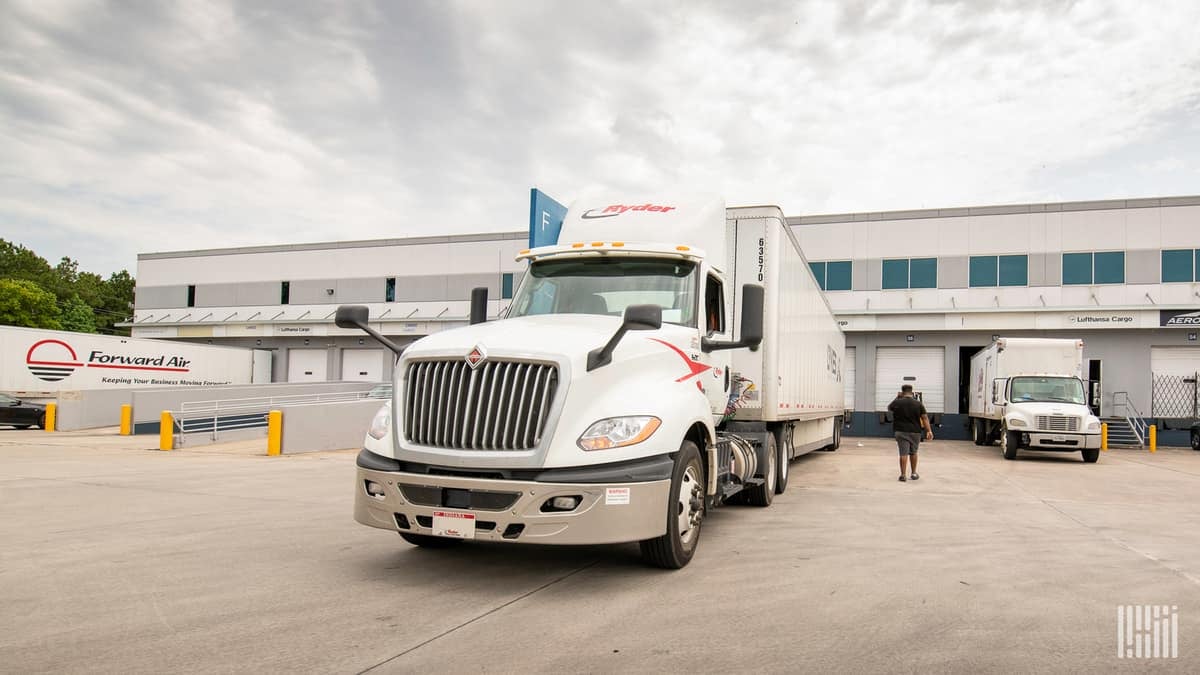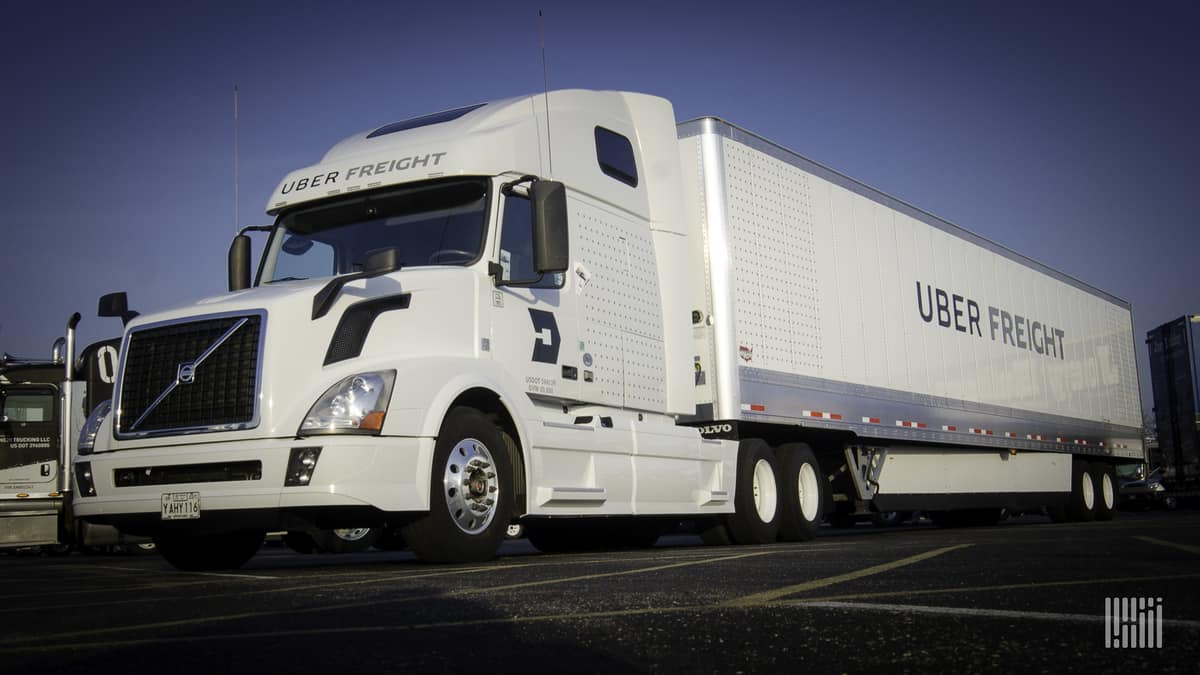The views expressed here are solely those of the author and do not necessarily represent the views of FreightWaves or its affiliates.
News reports that Uber is re-evaluating non-core units like Uber Freight did not take me by surprise.
To learn more about what’s happening, you can read JP Hampstead’s Uber ‘re-evaluating’ non-core units like freight, WSJ reports, which ran in FreightWaves on Monday, May 18.
Defining the problem
In The Business of Platforms by Michael Cusumano, Annabelle Gawer, and David Yoffie, the authors identify two primary types of platforms: Transaction platforms and innovation platforms.
Transaction platforms mainly function as intermediaries between participants in a market. Innovation platforms provide building blocks for the platform operator, other platform partners, and other platform participants to create new and complementary services and products that become part of an ecosystem that evolves with the platform as its foundation.
As I wrote in Commentary: Why are digital freight brokers struggling to solve their Uber-scale problems? which ran in FreightWaves on November 5, 2019, digital freight brokers have to solve the multi-homing problem; otherwise they will fail to disrupt the freight brokerage industry.
As I wrote then: The critical problem is not the freight matching problem. The critical problem is the profitable loads problem.
That has not changed.
The critical problem is not automation of freight brokerage. The critical problem is the profitable loads problem.
As the U.S. economy has succumbed to the effects of COVID-19, this has become even more apparent. Open conflict has broken out between owner-operators and freight brokers with the Owner-Operator Independent Drivers Association (OOIDA) petitioning the Federal Motor Carrier Safety Administration (FMCSA) on May 19 – urging immediate action to improve broker transparency. This was preceded by a letter to Congress on May 6.
Trucking is a low margin business. COVID-19 has wiped out the thin margins that many owner- operators earned for their efforts. The platform that can reliably and consistently help truckers find profitable loads at scale, or enable others to use its technology to repeatedly and reliably match truckers with profitable loads at scale will be the platform that wins the platform wars in digital freight brokerage.
Multi-homing is the direct outcome of carriers’ constant and ongoing search for profitable loads – on the headhaul and backhaul, and their enduring need to minimize deadhead miles.
The critical problem is the profitable loads problem.
Multi-homing hurts digital freight brokers in two ways. First it weakens the strength of the network effects that such platforms create for platform participants – carriers and shippers benefit less from digital freight marketplaces than one would expect. Second, multi-homing hurts digital freight marketplaces by limiting their ability to extract value from the platform since they do not earn any revenue for transactions that do not occur on the platform.
The solution is not merely to introduce additional fees. The solution is to create more value for carriers by first solving the profitable loads problem and then by increasing the productivity of carriers’ fixed and variable assets by a meaningful percentage.
That sounds easy. It is not.

Wrapping things up
Trucking is an essential sector within the global economy. It is also an economic sector that has not been as well-served by advances in software technology as other economic sectors. That is a topic I wrote about in Commentary: Can software meaningfully increase economic productivity in trucking? which ran in FreightWaves on February 20.
Digital freight brokers will have a hard time disrupting the freight brokerage industry if they do not first solve the profitable loads problem at scale.
The obvious question that follows is this: Is that even possible?
If you are a team working on innovations that you believe have the potential to refashion supply chain logistics, we’d love to tell your story in FreightWaves. I am easy to reach on LinkedIn and Twitter. Alternatively, you can reach out to any member of the editorial team at FreightWaves at [email protected].











RL
When Uber first started they had some pretty good loads on their board,but now its just horrible i uninstalled the app because its so useless.I haven’t hauled a load for them in at least 8 months.
Ashley Blossom
Uber is one of the best services to providers. Another thing which is to be appreciated is that they provide services to the doors of a common man. We are sure that it was not an easy decision when Uber was first started.
Art
Translation please?
Just another bottom barrel broker undercutting competitors with negative margin loads.
Digital revolution in brokerage is laughable.
Keep on fooling those investors Uber and Convoy.
Dave
Great article. The main problem for the digital guys is they need to get profitable asap. Running at a loss only lasts so long. No business model can be built on losses over the long term. If the legacy guys can be profitable then the digital guys can surely get there too from a combo of immediate cost cutting and immediate rate increases. Yes, they will be smaller after, but they won’t be bleeding cash and MAY even be able to turn a profit.
To address your multi homing comments YOU ARE RIGHT. No carrier will ever be loyal to one broker (digital or not). We use dozens of them and always will as we are in the hunt for the perfect load (no deadhead, high rate, light, and close to their next headhaul). That means scoring the best brokers and the load boards and getting the best fit for that point in time.
Again, great perspective Brian.
MrBigR504
Well said Dave!
Yoav Eiser
This is mainly an Uber problem because their ride share business collapsed. It’s wishful thinking if legacy brokers think they can crawl back into their caves.